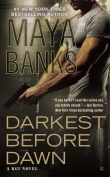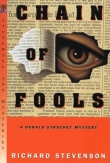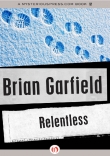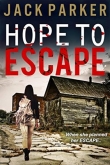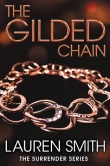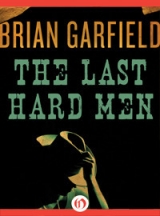
Текст книги "The Last Hard Men"
Автор книги: Brian Garfield
сообщить о нарушении
Текущая страница: 8 (всего у книги 12 страниц)
Hal said, “They’ve gone in the water to hide their tracks.”
Burgade grunted. He eased himself out of the saddle and had a long look around, turning slowly on the balls of his feet. Finally he took one of the canteens off his saddle—the empty one—and dipped it into the stream. It bubbled and filled. He set it down on the ground long enough for the mud and debris to settle to the bottom before he drank from it. The horses were guzzling from the stream.
“You may as well step down. We’ll wait here a bit.”
“What for?”
“Sundown. They kept going west up this stream, and I’m not about to follow along after them this time of day. Not with that sun in my eyes.”
“But they’ll gain two hours on us.”
“They’re not going far now,” Burgade said. “Beyond that pass to west of here, there’s a steep drop toward the gorge country. Provo’s somewhere right around here. I’d guess not more than three miles from us right now. At sunset we’ll scout around—on foot. Plenty of time. Why don’t you break us out something to eat? A man can’t fight on an empty belly.”
Hal gave him a bleak look of dulled anger. Probably couldn’t understand how he could act so casual and callous. Burgade lay down in a thicket of brush and kept turning his head slowly from side to side so as not to miss any stray sound. A lot of things were flooding back into his conscious memory and he didn’t want to interrupt the flow. It had been thirty years since he’d ridden scout for General Crook but he needed to remember everything now, every nuance. His only chance was to be a better Indian than Zach Provo.
He sat up to eat, and went to the stream to wash the camp pans and scrub his face. The sun was lodged in pinetops upstream and it was a good time for an ambush from that direction, and so he took Hal and the horses and faded back into the timber along the east face of a hill which blocked the sun from view. They waited there for almost an hour. Then he walked back to the stream, leading the horse. The twilight was cool and breezy; pine branches rustled overhead and the stream gurgled. Burgade walked along the bank, upstream, until he saw enough pale dots in the water to be sure. “They went up this way.”
“How can you tell?”
“Horses kicked over a lot of pebbles. Look.” He reached down into the water, up to his elbow, and picked up a small stone. “Rough side up. It’s been turned over recently—otherwise it would have been smooth and slimy like the other side.”
They walked very slowly up the bank. After ten minutes Burgade was trying to conceal the fact that he was breathing hard. He stopped and scowled at the heavy carpet of black clouds that was unrolling swiftly overhead. “We’ll have rain tonight.”
“Does that mean we might lose them?”
“Provo will make sure we don’t.” Burgade had been weighing things in his mind. Now he said with abrupt decision, “He’s not going to leave anything to chance. He’s got to be right around here someplace—three miles, maybe five, but no more than that. Otherwise he wouldn’t have bothered to ride in the water.”
“And?”
“He knows we’re close to him. He’s probably doubled back on his own tracks and set up an ambush. I don’t see any point in walking into it.”
“Then what do we do?”
“Nothing. We camp and sit tight. When we. don’t show up, he’ll send somebody out to look for us.”
“What if he does?”
“We’ll just wait for whoever it is to show up.” The trees crowded down close along both banks of the stream. The dusk was thickening, made darker by swelling storm clouds. Burgade spent ten minutes walking around in the trees until he found a spot that satisfied him. “We’ll picket the horses in here and roll up a couple of fake blanket dummies to look like men asleep. Doubtful anybody’ll fall for it, but whoever comes will investigate. Well set a little snare for him.”
“With what?”
Burgade rummaged in his saddlebags. “This.” He took out the coil of fine high-test fishing line.
The rain held off. Burgade showed Hal how to string the line, at shin level, taut from tree to tree. There wasn’t enough to go all the way around but it wasn’t likely an intruder would expose himself by stepping across the stream, so Burgade left that side open. The rest was circled by the tripwire.
By the time they were finished it was full dark. Burgade picked his spot and pushed down on Hal’s shoulder. “Don’t even breathe. We don’t want him to spot us.”
“What makes you think anyone will come?”
“We didn’t cross over the top. Provo had to be watching for us. When we didn’t show up, he must have started to worry. He may even think we got lost. He’ll send a stalking horse.”
“A what?”
“A man to show himself. Somebody we’ll recognize and follow. Meant to lead us into a trap. Now shut up and lie still.”
Burgade sat on the ground with his .30-06 rifle across his lap. Forty feet away, inside the tripwire circle, the picketed horses browsed. He couldn’t really see them; the darkness was complete. He spent a quarter of an hour gathering up dry pine needles and lashing them to the end of a two-foot twig in a torch-sized bundle. When that was done he unwrapped his waterproof match bag and put three wooden matches where he could get at them—one behind each ear and one between his teeth in the corner of his mouth like a toothpick. He set the rifle silently aside and palmed his .45 double-action, and then there was nothing to do but wait, and nothing to think about but Susan.
The shadows were deep and sinister, the darkness all but total. It was possible to make out the darker outlines of the trees overhead against the clouds beyond, and he could distinguish the boles of nearby trees and the shape of the forest ground, but the horses were only vague suggestions and he had to rely mainly on his ears.
It was hard to think about the anguish Susan must be going through; it was impossible not to think about it. Whether or not they had laid so much as a finger on her, she was living at every breath with the horror of it, the awful knowledge of what Provo aimed to do. Even if she could be rescued alive, would she ever be whole again?
Zach Provo had that to answer for. Burgade knew the rage that burned in Provo. It was no more savage than his own.
He heard the intruder long before he saw anything. The man was trying to be silent but he couldn’t help giving himself away. The wind had died, the creek was beyond earshot, there were no sounds at all to muffle the intruder’s movements. Whoever it was, it wasn’t Provo. Most likely it wasn’t Menendez or Taco Riva, either. Those three—and possibly Quesada—would know better than to move as fast as this one was moving. The sound was off to the right, perhaps a hundred feet away and coming forward on the far side of the horses.
The intruder halted for a while and almost went around behind the wire ring. Probably scouting in a crisscross pattern—but Burgade didn’t want him to circle away. He began to sweat in the cool darkness. The revolver stirred in his fist.
Hal stiffened. Burgade touched his shoulder to keep him quiet. Then he had a piece of luck. One of the horses stamped its hoof to get rid of an insect.
The soft thud echoed through the forest. The intruder, wherever he was, froze for several minutes. There wasn’t a sound. Burgade could imagine him, turning his face slowly to try to pick up tiny sounds on the flats of his eardrums; keening the night, staring into the darkness as if to burn it away with his gaze.
It was a long time before the intruder moved. Then the faint sounds of his travel crossed from right to left. The man was coming in toward the horses. Burgade lifted the revolver higher in his fist and settled his elbow against his knee.
He still couldn’t see the man. He heard him move in from that northerly quadrant, moving a few yards at a time and stopping to listen again. A stray breeze roughed up the pine needles briefly; it must have carried man-smell to the horses, for one of them whickered tentatively, a very quiet throaty sound in the night. The intruder recognized the sound and kept moving forward. He couldn’t be more than a few yards from the tripwire but Burgade couldn’t see a thing over there. Several trees were in the way. The tripwire itself was in his line of sight, but he didn’t know whether he was going to be able to see the man that far away even if he did step into the view-line: it was fifty feet away and the darkness was intense.
He could hear the taut dry constrictions of Hal’s breathing. The intruder seemed to have halted behind the trees just outside the tripwire. Within fifteen or twenty feet of the horses. The man must be able to see the blanket-wrapped dummies from there, the saddles and gear lying about. He would suspect the dummies for what they were. But his mission was to alert Burgade, not to evade him. The man had to move.
But he didn’t. A drop of sweat formed on Burgade’s forehead, ran down his nose, and dripped onto the back of his left hand. Had the intruder spotted the tripwire? Burgade’s grip on the .45 tightened. He suppressed the sudden urgent need to reach around and scratch the small of his back.
Then the intruder moved, crossing fast from pine to pine—Burgade saw his outline quite plainly, and then, between the trees, the tripwire caught the man just above the ankles and spilled him.
The man fell toward the ground with quite a bit of noise, grabbing at branches to stop his fall. Burgade ran forward five paces, the noise of his own movement covered by the intruder’s tumble, and stopped with a clear view of the man.
“I’ve got a gun aimed at you, friend. Don’t move a whisker.”
The intruder hesitated, both elbows on the ground; but it was all right. He’d made his decision when he hadn’t started shooting at Burgade’s first word.
Burgade moved slowly forward, holding the revolver balanced on the man. “Come on, Hal.”
The intruder was an amorphous shape in the poor light. But any movement would draw Burgade’s fire, and the man seemed to realize that. He didn’t stir.
Burgade stopped six feet from him. He handed the torch to Hal and got the matchstick out of his mouth. “Stay behind me. Light that and let’s have a look at him.”
The match exploded into light. By that illumination Burgade took one step forward and kicked the rifle away from the intruder’s black fist. He reached down and plucked the revolver from the belt holster. Hal had the torch lighted now. The intruder showed his alarm: wild white rings showed around the pupils of his eyes.
“George Weed,” Burgade said. “Stand up and walk over by the blankets.”
Weed got to his feet, surly and sullen. He didn’t talk. He went into the clearing. The buttstock of Hal’s rifle protruded from its saddle boot and Burgade saw Weed eyeing it. “Go ahead. Pick it up and try for me.”
Weed shook his head. “You’ve unloaded it.”
“Sure.”
“So you wouldn’t of shot me. You was bluffing. You wouldn’t of done it.”
“But you would have.”
“You bastard, Burgade. You motherfuckin’ bastard.” Weed turned around and pulled the crotch of his Levi’s down and said, “All right, hell, you got me, now what you going to do with me?”
“Tie you up,” Burgade said. “Hold my gun on him, Hal. If he tries anything, shoot him.”
“Yes, sir.” Hal’s voice was without tone. Burgade sat Weed down on the ground and tied his hands together behind his back with a rawhide piggin’ string. He tied the ankles together and used Weed’s own belt to hook the ankles and wrists together so that Weed couldn’t straighten out. Burgade kept one eye closed during the entire business and when he had tested the knots and found them secure, he stood up, still with his eye shut, and held his hand out to the side, and spoke to Hal behind him: “Now hand me back my gun and go douse that torch in the stream.”
The torch moved away from his back, throwing his bobbing shadow longer along the ground and then fading back among the trees. When he heard it sizzle in the water, he opened the eye he had kept closed. It had not been blinded by the light and now, with the one eye, he could see Weed well enough. He slid the revolver into leather and walked back across the tripwire to the spot where he had waited in ambush; picked up his rifle and brought it back into camp. Hal had come back from the creek, still carrying the soaked torch for some reason—Burgade said dryly, “You can throw that away now.”
Weed said, “What you expect to get out of this, anyway?”
“You were supposed to be a stalking horse, George. You were supposed to let me spot you and then you were supposed to lead me back into Provo’s ambush. Fine. Now you’re going to tell me where that is.”
“Stick it up your ass, Burgade. You don’t get nothing out of me. Nothing, motherfucker, nothing.”
Burgade ran his hands quickly over the man’s pockets. Nothing in them but odds and ends. But in Weed’s boot he found a sheath knife. He slipped it out and tested its blade with his thumb. It was a squat heavy knife, made for animal-skinning, not for fighting. It had gone rusty and a little dull. He locked its handle in his fist to weigh the knuckles and suddenly clouted Weed across the side of the face.
Weed’s head rocked back against the ground. Burgade heard Hal gasp.
A few tiny raindrops came down through the trees. Burgade felt one strike the back of his hand. His knuckles began to hurt. “I can beat on you for a while, George, until my hands get tired. And then I can start cutting you up with this rusty knife of yours. I don’t mind if you bleed to death.”
He heard Hal’s taut breathing, full of disapproval, but he didn’t look around. He only said, in the same calm voice, “Now, you know Provo doesn’t give a damn about you, George. He picked you to come out here because he figured you were the most expendable of all of them. When you don’t come back he’ll know I’ve got you. But it won’t worry him. He won’t do anything about it. You don’t owe him anything, George. And you may as well forget about that buried gold of his, because you’ve got no chance to get at it now. Either I slice you up and leave you here to bleed to death, or you tell me what I want to know, and I’ll leave you tied up until I’ve done my business here and then we’ll take you back to the law. That’s your choice.”
“Choice between you killing me and the law hanging me? Hell, Burgade, you got to do better’n that.”
“Maybe if you tell me what I want to know, Provo’ll kill me. Then all you’ve got to worry about is getting yourself untied. You might get away clear.”
Weed showed a double row of white teeth. “Now, there’s a thought, ain’t it?”
“Where are they, George? Where’s my girl?”
Weed told him.

Nine

Shelby came awake irritably. Somebody was kicking him in the butt.
“Come on, get up. Your turn to stand guard.” It was Joaquim Quesada. Shelby rolled over and saw it hadn’t been a kick after all. Quesada had been hitting him with the stock of his rifle.
“Jesus,” Shelby complained. “The hell time is it?”
“Quién sabe?” Quesada lay down and wrapped a blanket around him.
Shelby picked up his .30-30 and walked off a little piece, and sat down in the grass. It was a surly night, the sky was black and wild. Dim suggestions of enormous cloud banks drifted overhead. Somewhere to the west he saw the reflections of sheet lightning, a flicker through dark mist: it meant the lightning was somewhere beyond a thick haze of falling rain.
Provo had picked the most exposed spot on the map to camp. Shelby huddled in the chill night and tried to see out across the meadows. Menendez was sitting up on the far side of camp, by the horses, watching that way. The grass was cropped down short—Navajo sheep had grazed it and moved on. There wasn’t a tree for half a mile in any direction. The flat dish of grass was surrounded by mountainsides. A creek came down out of the peaks and ran along the lower end of the meadow before it spilled over a waterfall into a canyon beyond; the creek-bank trees, maybe a thousand yards away, were the nearest cover of any land. Shelby felt isolated, exposed, and nervous, even though he knew there wasn’t a rifleman alive who could make a bullet count at that range.
They had come down into the meadow by a round-about switchbacking route. When Provo had chosen the campsite, out in the middle of the grass, Gant had exploded in anger. Provo had ignored him completely: the only remark he made was, “Rivers can be as changeable as women. That creek’s changed its course some since last time I was here.”
Portugee had yelled and bitched. It was a setup for an ambush. They could be surrounded. It was a trap. Menendez had laughed at him. Provo had said, “Only two men after us. How’s two men going to surround anybody?”
Shelby knew he was right. It made perfect sense. Burgade couldn’t come within range of them without showing himself on the meadow. There was no cover. But what the hell did Provo intend to prove by all this?
And there was another worry. He could already begin to make out the vague shadow-streaks of falling rain above the slopes immediately to the west, illuminated by frequent bursts of lightning. In a few minutes the storm would be on top of them. It could conceal Burgade if he came then.
Shelby unfolded his oilskin slicker and put his head through the poncho hole. He laced it up around his throat and sat with the poncho flowing around him, a tent that covered him from the neck down. He stared into the cool opaque night with wide eyes and kept shifting his grip on the rifle. Once, he thought he saw something move in the corner of his vision; he whipped his head around and stared. Nothing. He swallowed and glanced across at where Menendez was sitting, but he could no longer make out Menendez’s shape in the impenetrable black.
He knew his fear was irrational. They were eight against two—or anyhow seven against two; Weed hadn’t come back yet, but nobody expected him before dawn. But groundless or not, fear was a constriction against which Shelby pushed with increasing resentment.
The drumming crash of the thunderstorm awoke the others; there were rustlings and stirrings, men wrapping themselves in oilskins. Shelby walked over to where Susan Burgade lay. Provo had tied her hands behind her and hobbled her ankles. Someone had thrown an oilskin across her. Shelby couldn’t tell if she was awake. She didn’t stir when he bent down over her. He straightened up after awhile and walked back to his post.
There was rain. It came down hard and sudden, as if dumped out of buckets from treetop height. Fierce lightning licked across the sky in fragments and stabbed toward the earth, brought down by metal in the mountain rocks. Inside of a minute the water was funneling out of the trough of Shelby’s hatbrim, dripping down the back of his neck, getting inside the collar of the slicker. Within a few more minutes he was soaked through.
“Easy, Mike. It’s me.”
Provo’s voice made him jump a foot off the ground. Shelby turned and said, “Christ, Zach.”
“Can’t see anything in this rain anyway. Let’s you and me go sit with missy.”
“She’s all right. I just checked her.”
“I know. But Burgade might take a notion to come in tonight, use the rain for cover. If he does, he’ll try to find his girl and ease her out of here without us seeing him.”
Shelby went, with him to the girl. She hadn’t moved. Provo didn’t sit down. He stood above the girl, a tall lean shadow in flowing oilskins. Shelby sat down on the wet ground and brooded miserably into the rain. A shaft of lightning sizzled down not half a mile away and thunder crashed immediately. The rain was a steady splashing racket.
The waiting rubbed his nerves. He tried to occupy himself by making plans, thinking about the gold, deciding step by step where he would go and what he would do. Australia, he thought. Or East Africa. Ride from here up across the Four Corners into the Rockies. Get outfitted in respectable clothes in Ouray or Silverton, so he wouldn’t attract attention. They probably had his picture on post office walls, but he had an ordinary young face, likely nobody’d spot him if he just used his head, kept calm, didn’t act like a fugitive. Ride the coach on up through Grand Junction and up into the Jackson Hole country. Up past the Tetons through Cody, on up by Butte and Helena and right through into Canada. If the money looked short he’d knock over a country store or two, but do it at night and wear a mask so nobody’d see his face. Keep moving, that was the trick. As long as you kept moving and didn’t shackle yourself to anybody else, you’d be all right. Loners always had the best chance because there was nobody to betray them.
That was why it bothered him staying here. He didn’t want to rely on Provo or anybody else; and he didn’t like standing still like this. But he’d invested his time and he had the money coming to him. He was going to stick it out until Provo came across with the gold. And Provo would. There wasn’t going to be any double-cross. Not with seven of them against Provo. If he got balky about leading them to the gold, they’d make him talk. Provo was tough, all right, but no man alive was that tough.
Burgade didn’t show up. Neither did Weed. At dawn the sky was dark and wild, but the rain had moved on. There was no reason not to build a fire since they weren’t hiding any longer, but there was no dry wood to be had and Provo vetoed it when Riva and Quesada volunteered to go over to the trees and hunt around for covered fuel. “Why take a chance of getting picked off when you can stay out here safe?”
So they ate cold breakfasts and let the clothes dry on their backs. Susan Burgade sat huddled and dull-eyed, her long hair matted and damp. Shelby gave her something to eat and she pushed it around the plate. She didn’t have any interest in it, but when Shelby came back after twenty minutes to get the plate and scour it out, she’d finished it all. Reflex, probably; she had a vacant look on her face and probably didn’t even remember having eaten.
The sun burned off the ground-water, which had clung to the grass like dew. By ten in the morning it was as if there hadn’t been a rain at all. Riva was fussing over the horses. The rest of them sat around or wandered about on foot, kicking at the ground and brooding and building up nervous impatience. Shelby could tell nobody was going to put up with this for long. Weed hadn’t returned and everybody was speculating about what might have happened to him, but finally Provo put a stop to the guesses:
“You all know damn well what happened to him. He wasn’t smart enough. Burgade set a trap and George walked into it. We won’t be seeing George anymore. Forget him. We didn’t need him anyway.”
Provo stood a little distance from the rest of them. He was in his shirtsleeves, hatless, the wind blowing through his raven-black hair. He had a rifle in both hands, not pointed anywhere in particular but ready for use. “Let’s don’t fool around,” he said. “I know what you’re thinking. A little mutiny in mind. You don’t like sitting around here right out in bare-ass daylight and not doing anything. You want to grab your gold and go. All right, I don’t blame you for that, but we made a bargain and I kept my part of it. I kept you out of the hands of the law. Now you’re going to keep your part of it. You’re going to help me punch Sam Burgade’s ticket for the promised land. As soon as that’s done, you’ll get your gold and you can go.”
Mike Shelby said slowly, “Listen, Zach, I can’t talk for anybody else, but the way I see it, either we get Burgade quick or we forget it. Burgade’s already got one man riding with him, we saw them yesterday. It won’t be but a few days before the law boys bust through that handy Navajo red-tape of yours and come swarmin’ onto the Reservation. Another three, four days up here and we’ll be boxed in like steers in a slaughterhouse. What if Burgade just sits out there and watches us until his reinforcements show up?”
Provo’s iron eyes narrowed when his lips smiled. “I’ll make you a bargain, Mike. All of you. If we don’t bring Burgade down by tomorrow sundown, I’ll point you to the gold and you can go dig it up and be on your way. That sound fair to everybody? Any objections?”
A group of them stood in a knot—Gant, Shiraz, Quesada, Riva. They talked swiftly among themselves. Shelby stood off to the side, near Menendez. Shelby didn’t join in the discussion but he said to Provo, “Satisfies me, I guess.”
Provo said, “Portugee, the rest of you—one other little treat in the package for you. Two or three of you been wanting to have a hack at missy, here.”
Will Gant tugged at his nostril hair. “You fixin’ to let us have her?”
“When the time comes.”
“When’ll that be?” When Gant looked at Susan Burgade his neck swelled with musky desire. She must have been aware of it—she was looking right at him—but there was no break in her dull, indifferent expression.
“It’ll be when I say it’s to be,” Provo said. “Take it or leave it, Will.”
Portugee punched Gant in the arm. “Aw, hell with it, Will. We gone along this far with him.”
Gant sat down slowly on the pile of saddles. He put his hands on his knees. The weight of his huge belly sagged against his thighs. He smiled.
Shelby was standing close by when Menendez walked over and said to Provo, “Listen, Zach, what if Weed ef-fell off some focking cleef last night and bosted his es-stupid neck? What if Burgade never got to him at all? That rain las’ night washed out our tracks for es-sure.”
“You’re saying you’re worried Burgade won’t find us?”
“Ahjess. The sonomabitch, he’s old, Zach, and he’s es-scared, and maybe he’s all focked up and not thinking es-straight.”
Provo laughed without humor. “He’s stuck to us this far like a burr under a blanket. Don’t underestimate Sam Burgade. He’s not a son of a bitch, Menendez, he’s the son of a bitch, but that doesn’t make him a fool. He knows where we are. Or if he doesn’t, he’ll find us soon enough.”
“Maybe. But we ain’t got jost a whole lot of time. Why not make es-sure, Zach? Why not es-send him an eenvitation?”
Provo squinted at the sun as if to judge the time. “Maybe you got a point,” he said. He lifted his voice and bellowed: “Hey, all of you. I’m going to fire a few shots. Don’t anybody get nervous. Riva, take care of those horses, see they don’t spook from the noise.”
Gant said, “What the hell?”
The last of his words was drowned in the rolling thunder of Provo’s revolver. He was shooting indifferently into the earth ten yards from his feet. The bullets plowed up spouts of dirt. The noise echoed across the flats. “That ought to bring him,” Provo said mildly, and opened the revolver to plug out the empties and reload.
Provo repeated the noisemaking every hour or so for the rest of the morning and into the early afternoon. Every time he did it, it took Riva and Quesada and Shelby a good ten or fifteen minutes to calm down the hobbled horses. The horses had never been trained to guns. It was a good thing they hadn’t had any running gunfights on these animals.
Susan Burgade sat like a stone until two in the afternoon. Provo spent most of his time scanning the surrounding timber fringe through his spyglass, sitting on the ground and studying each quadrant with great and patient care before he shifted his seat to survey the next. Obviously looking for signs of Burgade.
About two o’clock Provo went over to the girl. Shelby was near enough to hear him say, “Get up and walk around some, missy. You don’t want to get a cramp in your legs from sitting all day.”
Susan didn’t argue. She didn’t even seem to resent the command. She got up and walked back and forth like some kind of mechanism. The wind spun her hair around her face; she combed it away with her fingers and tossed it back with a shake of her head. She had good long legs and a practical stride. There was nothing alive in her face but her eyes, which were full of thinly guarded panic.
Shelby watched her walk back and forth and thought how lovely she was, even with her filthy wrinkled clothes, even with dirt on her face and in her hair. He didn’t much like what Provo was doing. Getting her up and walking her around was a way of telling Sam Burgade the bait was still alive. Provo had to assume Burgade was out there somewhere in the trees, probably watching through field glasses. Maybe he was and maybe he wasn’t. Shelby didn’t like any of it.
Will Gant came along and stopped beside Shelby to watch the girl with his crude sensual leer. He was watching her buttocks as she walked. “Oh, Jesus,” Gant whispered in awe. “Oh, Jesus H. Christ, will you look at that.”
Gant’s breath made Shelby turn away. The sun was high and hot. A trickle of sweat ran out of his armpit, down his ribs.
Along about half past three, Provo suddenly stopped his telescope-watching and got to his feet. “He’s out there,” he said positively. “Over east in those oaks and cedars. I caught a flash, must have been the lens of his glass.”
Shelby said, “What do we do now?”
Portugee Shiraz said, “Hell, we ought to wait for dark and set up a fucking ambush a fly couldn’t get through.”
Shelby was dubious. Night ambushes could work two ways. He turned to speak, but Provo cut him off: “No. Why play at his game? All we need to do is wait for him to come to us.”
Shelby said, “He can wait us out. He’s got more time than we’ve got.”
Provo seemed amused—genuinely amused for the first time since the breakout. “Well, in that case, let’s give him a little entertainment to help him pass the time. Missy? You don’t mind, come along here with me.”
Provo took Susan’s arm. She didn’t shake him off. He steered her up past the horses onto the little rise of grass, only thirty feet beyond camp. “Sit yourself down, missy. You want to wave to your old man over there? Go ahead. Wave to him.”
She sat down and put her hands in her lap. Provo laughed. “Suit yourself.” He turned and lifted his voice. “The old man’s got a box-seat view. Will, Portugee, you two been aching to dip your wicks. Now’s your time. Come on up here and have your fun.”
Stunned and horror-struck, Shelby could feel the sudden anger rising in him, the coming explosion. Heat rushed to his face. “No!” he roared. He locked his fist over the grip of his holstered revolver. He stood facing Gant and Portugee.

